 Your new post is loading...

|
Scooped by
Edumorfosis
February 1, 8:06 AM
|
Los investigadores han advertido que el éxito de este método no reemplaza a los maestros humanos. Señalan la importancia de no depender de esta tecnología para evitar perder el pensamiento crítico

|
Scooped by
Edumorfosis
January 31, 10:10 PM
|
In January 2026, AI researchers Arend Hintze, Frida Proschinger Åström and Jory Schossau published a study showing what happens when generative AI systems are allowed to run autonomously – generating and interpreting their own outputs without human intervention.
The researchers linked a text-to-image system with an image-to-text system and let them iterate – image, caption, image, caption – over and over and over.

|
Scooped by
Edumorfosis
January 18, 2:34 PM
|
AI is reshaping how we work. If you happen to be a senior professional with sufficient reputational capital and status and a deep social network, you may be relatively safe from being displaced by AI—at least for now.
However, there is mounting evidence that the same is not true of entry-level jobs. A Stanford study found that US employment for early-career employees in the most AI-exposed fields, such as software development and customer service, has fallen substantially in recent years. Research at the World Economic Forum suggests that 50–60 percent of typical junior tasks (report drafting, research synthesis, coding fixes, scheduling, data cleaning) can already be executed by AI.

|
Scooped by
Edumorfosis
December 17, 2025 10:02 AM
|
Today, Generative AI is creating another disruptive leap forward. Large Language Models and foundational models are speeding up data analysis while Gen AI coding tools allow teams to spin up ad hoc applications to solve incredibly specific problems. And all of the scenarios above? With the correct human oversight, that analysis can be performed—and decisions can be made—autonomously.

|
Scooped by
Edumorfosis
November 14, 2025 11:20 AM
|
Would you like to work nearly double the standard 40-hour week? It’s a question that many startups in the US are asking prospective employees—and to get the job, the answer needs to be an unequivocal yes. These companies are embracing an intense schedule, first popularized in mainland China, known as “996,” or 9 am to 9 pm, six days a week. In other words, it’s a 72-hour work week. The 996 phenomenon in China gave rise to major protests and accusations of “modern slavery,” with critics blaming the schedule for a spate of worker deaths. Despite the negative connotations overseas, US firms, many of them working on artificial intelligence, are adopting both the schedule and its nickname as they race to compete against each other—and with China.

|
Scooped by
Edumorfosis
November 3, 2025 8:59 AM
|
The Metaverse for Virtual Workplaces market is segmented by Types (3D collaboration, avatars, immersive meeting spaces, VR offices, digital twins, AI hosts, team-building gamification, file sharing, VR analytics, spatial audio), Application (remote collaboration, virtual events, training, onboarding, hybrid work, engagement, innovation labs) and by Geography (North America, LATAM, West Europe, Central & Eastern Europe, Northern Europe, Southern Europe, East Asia, Southeast Asia, South Asia, Central Asia, Oceania, MEA).

|
Scooped by
Edumorfosis
October 22, 2025 3:47 PM
|
Agents represent the next generational leap forward for AI, following the Generative AI revolution that has taken place over the past two years. Rather than simply answering questions, chatting or generating content (like ChatGPT), they are capable of taking action. This means carrying out complex multi-step tasks, interacting with third-party systems and working towards long-term goals with minimum human interaction. In 2026, we’ll get more insight into whether this represents further progress towards true Artificial General Intelligence (AGI), AI with human-level adaptability, able to generalize learning from one task and use it to work out how to complete many others, just like humans do.

|
Scooped by
Edumorfosis
October 21, 2025 9:50 AM
|
In our recent 2025 Work Trend Index Annual Report, we charted the emergence of the Frontier Firm—powered by intelligence on tap, run by human-agent teams, and defined by a new role for every employee, the agent boss. These firms are redesigning business processes around AI and agents to scale rapidly, operate with agility, and generate value faster than traditional companies.
But organizations will never complete their journey to becoming a Frontier Firm by concentrating on process alone. Our research, based on trillions of globally aggregated and anonymized Microsoft 365 productivity signals, reveals a challenging new roadblock: a seemingly infinite workday.

|
Scooped by
Edumorfosis
October 20, 2025 12:02 PM
|
Debido a la proliferación de sistemas, plataformas y aplicaciones de inteligencia artificial en el mercado laboral, el trabajo humano se está desplazando hacia la integración, monitoreo y analíticas de nivel superior. El trabajo de nivel medio ─roles técnicos rutinarios─ se está comprimiendo. Esto provoca que los trabajadores de cuello azul tengan que aumentar sus niveles de empleabilidad al ejecutar tareas en niveles cognitivos superiores o reubicarse en trabajos de menor cualificación y presumiblemente peor pagados.

|
Scooped by
Edumorfosis
October 5, 2025 11:03 AM
|
El mercado laboral en Estados Unidos está viviendo un cambio histórico. Lo que antes parecía ciencia ficción, hoy es una realidad: millones de empleos están siendo reemplazados por la inteligencia artificial.
¿Qué significa esto para ti? - Profesiones enteras podrían desaparecer en menos de 5 años.
- Universitarios recién graduados ven cómo sus oportunidades se desmoronan.
- Call centers, despachos de abogados y áreas administrativas ya están siendo sustituidos por algoritmos.

|
Scooped by
Edumorfosis
October 3, 2025 5:06 PM
|
El informe del MIT titulado El Estado de la IA en las Empresas 2025, se basó en investigaciones preliminares del Project NANDA, en donde se detectó el fenómeno conocido como la Brecha de la IA Generativa. Esto se debe a que la IA Gen está siendo mayormente utilizada para ejecutar tareas individuales relacionadas con el marketing, en vez de implementarlas en desarrollo interno organizacional y en la solución de problemas con los flujos de trabajos de oficina. El informe concluyó que la asignación de la inversión de la IA Gen estuvo fuertemente concentrada en funciones visibles de línea superior (top-line), a pesar de que las funciones internas (back-office) a menudo ofrecieron un mejor retorno de la inversión (ROI).

|
Scooped by
Edumorfosis
September 21, 2025 8:57 AM
|
Artificial Intelligence tools are now playing a role in many aspects of life and society, spanning politics, the arts, work and beyond. While Americans express some openness to AI’s potential benefits, they’re concerned about its impact on some human abilities, according to a new Pew Research Center survey. U.S. adults are generally pessimistic about AI’s effect on people’s ability to think creatively and form meaningful relationships: 53% say AI will worsen people’s ability to think creatively, compared with 16% who say it will improve this. An identical share (16%) says AI will make this skill neither better nor worse.

|
Scooped by
Edumorfosis
September 19, 2025 2:31 PM
|
To study such patterns of early AI adoption, we extend the Anthropic Economic Index along two important dimensions, introducing a geographic analysis of Claude.ai conversations and a first-of-its-kind examination of enterprise API use. We show how Claude usage has evolved over time, how adoption patterns differ across regions, and—for the first time—how firms are deploying frontier AI to solve business problems.
|

|
Scooped by
Edumorfosis
February 1, 7:49 AM
|
AI agents are moving beyond coding assistants and customer service chatbots into the operational core of the enterprise. The ROI is promising, but autonomy without alignment is a recipe for chaos. Business leaders need to lay the essential foundations now.

|
Scooped by
Edumorfosis
January 21, 2:32 PM
|
McKinsey & Company has rapidly expanded its workforce with some 25,000 AI Agents. Bob Stenfels (CEO) says he wants an AI Agent working alongside all of its 40,000 employees. AI is rapidly changing both the work consultants do and how they do it. Sternfels said on the podcast that just a year and a half ago, the company only used a few thousand agents and hopes that in the next year and a half, every employee will be "enabled by at least one or more agents."

|
Scooped by
Edumorfosis
December 27, 2025 10:27 AM
|
The workforce of the future is already arriving. AI agents — autonomous co-workers capable of executing complex business tasks without human intervention — are moving from concept to reality across enterprises worldwide. These digital workers are handling everything from marketing campaign execution to HR automation, financial processing, supply chain logistics, and manufacturing oversight. Agents have become the defining technology shift of 2025.

|
Scooped by
Edumorfosis
December 6, 2025 8:31 AM
|
The problem we are all trying to solve isn’t how to work with AGI; it’s how to improve organizational productivity. The most common answer is to delegate. We’re told to boost productivity by having AI complete tasks for us. This is the “easy button.” This approach, however, is a strategic trap. It overlooks a far more powerful solution: improving productivity by designing AI to make our people demonstrably better at their jobs. This represents a shift in perspective. The goal is not just to get work done, but to enable our workforce to become something more. This distinction—between delegation and augmentation—is the key to building super-intelligent teams.

|
Scooped by
Edumorfosis
November 14, 2025 11:07 AM
|
Artificial intelligence has accelerated the Wright’s Law principle. It is rewriting it, which assumes that experience follows production: You make mistakes, learn from them and improve. AI makes it possible for experience to come before production. Simulation can happen millions of times before a single box is shipped. Experience scales almost instantly at no real cost. The learning curve doesn’t only steepen. It collapses.

|
Scooped by
Edumorfosis
October 23, 2025 4:40 PM
|
La automatización ya no es una predicción: es una realidad que está transformando el mundo del trabajo. Millones de empleos desaparecerán mientras otros nuevos surgen, y solo quienes se adapten sobrevivirán. En este video analizamos el gran reemplazo laboral: cómo la inteligencia artificial, la robótica y la automatización están reescribiendo el sentido del trabajo humano. Verás qué profesiones están en riesgo, cuáles emergen y cómo prepararte para no quedarte atrás. Una reflexión urgente sobre el futuro que ya comenzó.

|
Scooped by
Edumorfosis
October 21, 2025 10:04 AM
|
Soon, every employee will have their own team: an ensemble of agents that can amplify impact and get work done on their behalf. Being an “agent boss”—someone who builds, manages, and delegates to agents—is set to become a key part of every job.

|
Scooped by
Edumorfosis
October 20, 2025 12:30 PM
|
In 2026, AI will continue to play an increasingly significant role in every part of our lives, and the workplace will be no exception. But just as important as learning to apply these powerful new tools will be understanding where uniquely human skills and judgement remain essential. So here are the seven workplace trends I believe will affect all of us as companies adapt to technological change, shifting employee expectations and the new realities of the rapidly evolving world of work.

|
Scooped by
Edumorfosis
October 8, 2025 4:46 PM
|
AI promises efficiency, scale, and predictive precision. And there are real gains being realized. Yet many organizations have traded understanding for output. Their enjoy their dashboards, reports are generated on demand, and decision-making is better informed, but comprehension has decayed. This decay arises not from technology itself but from a fundamental confusion about the nature of knowledge.
Leaders often claim to manage “knowledge assets” when they manage data streams. They speak of “knowledge sharing” when they circulate unexamined summaries. They celebrate “insight generation” when algorithms rearrange correlations. Such language mistakes the signal for the sense, the measurable for the meaningful. The result is organizational laziness disguised as sophistication.

|
Scooped by
Edumorfosis
October 5, 2025 10:06 AM
|
Entry-level jobs are disappearing. The promise of AI’s workplace abilities and economic uncertainties have caused many companies to take pause while graduate-level unemployment is at an all-time high. What will the future of work look like if there are fewer starter jobs and middle management positions? Professional development and leadership pipelines will need to be redefined but how are companies doing it?

|
Scooped by
Edumorfosis
September 30, 2025 11:18 AM
|
El informe de Udemy, Global Learning & Skills Report 2026 analiza la necesidad de transformar la fuerza laboral ante el auge de la IA y los cambios disruptivos que se avecinan. Argumenta que dominarla no es solo un objetivo técnico, sino que requiere una nueva mentalidad operativa y una redefinición sistemática de los procesos de aprendizaje. El informe aboga por un desarrollo de habilidades más práctico y contextualizado, en lugar de la formación tradicional (conferencias-talleres), para garantizar la retención de conocimientos y su aplicación real. Asimismo, destaca que el éxito en la implementación de la IA depende de un liderazgo eficaz, una ética sólida y la autonomía del personal para gestionar la incertidumbre y generar confianza. El documento sostiene que la verdadera ventaja competitiva para el éxito a largo plazo, más allá de la era actual de la IA, reside en la capacidad de adaptación continua, impulsada por habilidades esenciales como el pensamiento crítico.

|
Scooped by
Edumorfosis
September 20, 2025 2:30 PM
|
MIT researchers studied 300 public AI initiatives to try and suss out the "no hype reality" of AI's impact on business, Aditya Challapally, research contributor to project NANDA at MIT, tells Axios. - 95% of organizations found zero return despite enterprise investment of $30 billion to $40 billion into GenAI, the study says.
- Even firms that are now using AI are not seeing widespread disruption.
|

 Your new post is loading...
Your new post is loading...







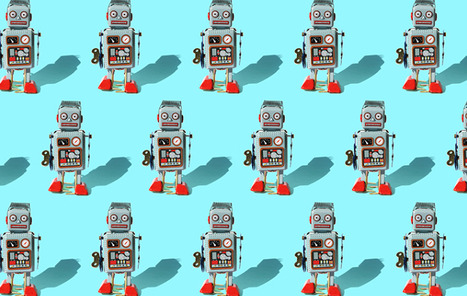



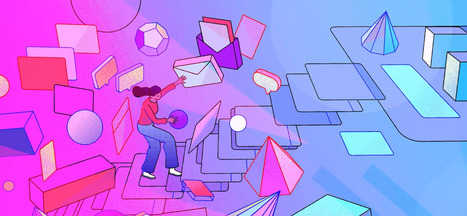



![[PDF] How Americans view AI and its impact on people and society | Edumorfosis.Work | Scoop.it](https://img.scoop.it/phwO5uJszB54hEHJQxIv9jl72eJkfbmt4t8yenImKBVvK0kTmF0xjctABnaLJIm9)

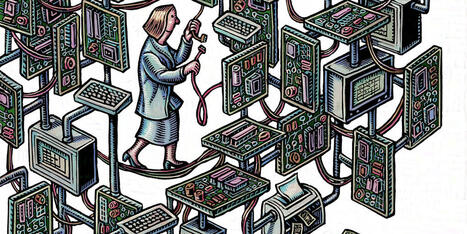





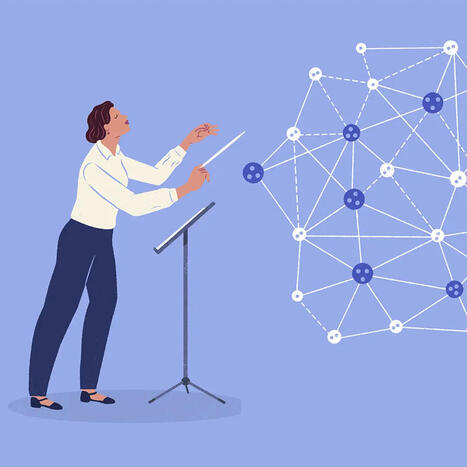
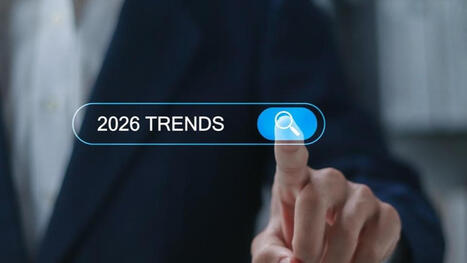
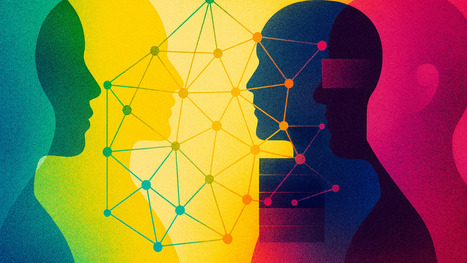








El sistema educativo sigue pensando en cómo integrar la IA en el currículo, aula y clases. Se está encapsulando en lo que pasa en el salón, cuando lo más importante es lo que pasa en el cerebro de cada estudiante. Mientras tanto, la IA invisibiliza lo que sucede a nivel cognitivo. El aprendizaje con IA sigue siendo una caja negra que se evalúa con el entregable. Seguimos calificando el trabajo entregado, cuando deberíamos medir las "fuerzas de cambio estudiantil".